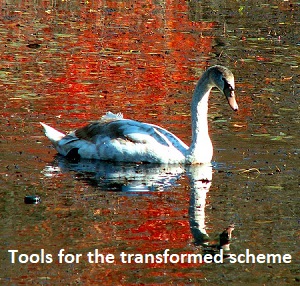Tools to support the 2021 Athena Swan Scheme
Oxford Research and Policy have produced a number of tools to support university departments in their Athena Swan work using the transformed scheme. Whilst the new scheme offers flexibility, we believe that department-based staff working on Athena Swan applications would benefit from clear guidance. We also believe that it would be beneficial for universities if all their departments take a similar approach to Athena Swan as this will make supporting them easier.
The tools we have developed are:
- Ten Steps for a Department to apply for an Athena Swan Award
- Athena Swan Department Self-Assessment Record
- The Athena Swan Department Application Checklist
- The Good Practice Checklist (2022 edition)
The tools are currently in draft form but are available for download. Comments from users will be welcomed on the usefulness (or not) of any of the tools. If you do find them useful, please refer to their use in your Athena Swan award application.
The tools can be downloaded here.
Ten Steps to apply for an Athena Swan Award
The Ten Step guide is designed to support departments in planning your Athena Swan work. We recommend that you use the guide as your starting point. The guide highlights the key steps in putting together an Athena Swan application from bringing together and organising your Self Assessment Team, through carrying out your self assessment, to completing the application form.
Athena Swan Department Self-Assessment Record
A thorough and honest self assessment remains key to a successful Athena Swan application. In fact the 2021 Advance HE transformed Athena Swan principles commit departments to undertake an evidence-based, transparent self-assessment to direct their EDI priorities and interventions, to evaluate their progress and to inform the department’s continuous development. The self assessment should be carried out before completing the Athena Swan application form. Advance HE is not specific on what it expects from department self assessments so we have produced our self assessment record which takes as its starting point the 2015 Athena Swan scheme application form since this approach has proved successful since 2005.
We have produced this Self Assessment Record because staff in some university departments have told us they would welcome more direction on the areas to cover in their application.
We believe keeping a record of the department self assessment is very important. Keeping a written record will help your successor SATs – it might be five years before another comprehensive self-assessment is carried out. With a written record, your successor SAT will know what you have examined, what your conclusions were, and what led you to identify the actions included in your action plan. We recommend that the completed self assessment record is retained as an official internal document.
The record could also form part of the evidence universities examine as part of their Athena Swan quality assurance processes.
The Athena Swan Department Application Checklist
The Department Application Checklist’s purpose is to allow you to make sure you cover everything necessary when completing the Athena Swam application form.
The Good Practice Checklist
The Checklist comprises ninety Good Practice Benchmark Statements. The good practice statements have been used by many UK university departments preparing applications for Athena Swan awards. The latest iteration of the Checklist is structured to meet the needs of university departments working on applications for the 2021 Athena Swan “transformed” scheme. Once you have familiarised yourself with the Ten Steps outlined in the Ten Step Guide, using the Good Practice Checklist is a great way to assess where you stand and to help you identify gaps in practice.
The tools can be downloaded here.
The Good Practice Checklist can be downloaded from the Good Practice Checklist page.



